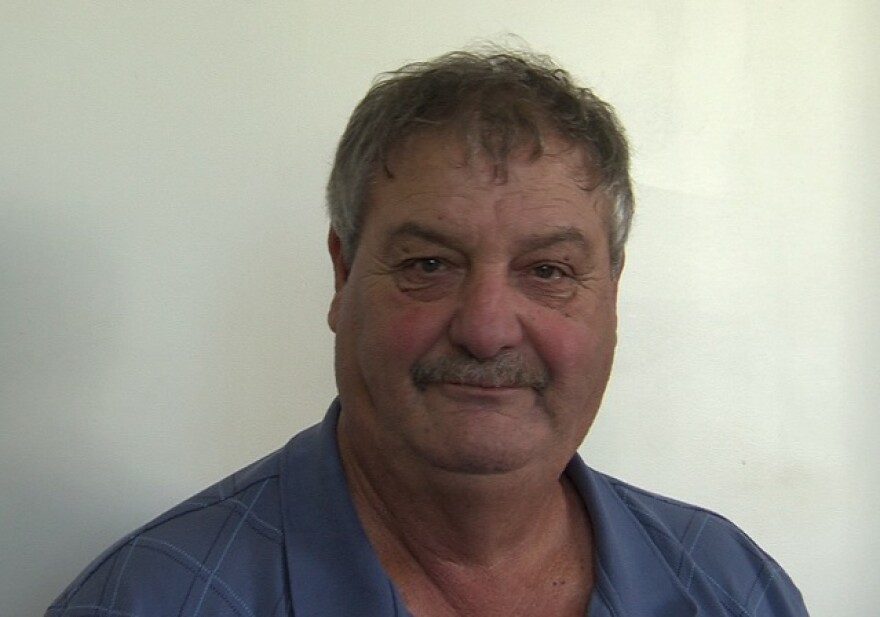Two million people live in the 32 counties that make up Appalachian Ohio. And the voters there could play a key role in determining the nation’s next president.
In the latest installment of the Statehouse News Bureau’s series featuring voices of Ohio voters, correspondent Jo Ingles talked to people in the heart of Appalachian Ohio about the issues and concerns that drive them this election year.
'It just seems like both parties up in Columbus and at the national level just forgot about us.'
Like the rest of Appalachian Ohio, Pike County has a higher jobless rate the state overall and a higher percentage of people in poverty. Back in 2012, Pike County’s presidential contest was the closest in the nation. Republican Mitt Romney won by just one vote.
It’s a county that’s been hit hard with problems in recent years. Drug and alcohol recovery centers punctuate the downtown streets these days.
Here on Emmitt Street, the main drag through Waverly, there’s a car lot where the city’s crown jewel, the Emmitt House Bar and Restaurant, once stood. Two years ago, the historic building built by one of the town’s founders more than 100 years ago burned to the ground. Now a plaque commemorates the site, which is across from the county library, where Tom Adkins works.

“We often feel neglected in this part of the state. We are often passed over and forgotten about. Nothing exists in Ohio below Columbus.”
That’s a sentiment that’s echoed by Rob Junk, Pike County’s prosecutor.
“There just really isn’t a whole lot. It just seems like both parties up in Columbus and at the national level just forgot about us.”
As he waits for a haircut at the Old Canal Barber Shop, Junk says Pike County has been struggling.
“Our Mills Pride Cabinet Company closed down, the atomic plant south of town in Piketon is on cold standby. We need some help with jobs so people can grow up in Pike County and go to work here and have a good paying job.”
Local retiree Ray Rigsby says he worries about the federal deficit.
“The deficit is my biggest issue because if they don’t do something with the deficit, and you can’t spend your way out, we’re just getting farther and farther in. ... We are going to go broke and we’ll be like Greece.”
'Nothing exists in Ohio below Columbus.'
Rigsby says he plans to vote for Republican Donald Trump. Ditto for his brother, Ivan Rigsby, a retired Pike County teacher.
But Ivan says he’s more concerned about reforming health care. He says he’s lucky to be alive, but he had to pay thousands of dollars in out-of-pocket costs after becoming ill while out of state.
“I got sick in Myrtle Beach. And of course it was out of network. And I needed to be flown to Cleveland Clinic. I was there in Myrtle Beach for about 34 days in the hospital and they couldn’t help me. ... So we had to hire a private jet, pay $10,000 up front to fly me to Cleveland Clinic.”

Rigsby says he put the expenses on credit cards and is paying them off as he can. Down the street at the local library, Jennifer Slone also worries about health care.
“One thing that is extremely important for this area is the preservation of free health-care for everyone. We have not the greatest health rates in Pike County. I think there’s been some studies that show we are doing pretty bad in that regard.”
Slone is voting for Democrat Hillary Clinton, saying she’s the best candidate to deal with that issue.
'There are still a fair amount of people who are undecided, could be swayed and are still on the fence.'
Tom Adkins says he’s also voting for Clinton. He thinks she is the best qualified to deal with the issues facing Pike County and the U.S.
“She has more of a presidential temperament. They always say you can catch more bees with honey than vinegar. And I think when it comes to the top of the ticket, that’s definitely important.”

Adkins hears a lot of talk about politics these days at the library. He says he feels voters in this county tend to vote for candidates themselves instead of staying loyal to a party label. The stats show Pike County has been a bellwether in three of the last four elections, picking the presidential candidate who won the state. When it comes to this particular election, he thinks it could go down to the wire again, just like it did in 2012.
“There are still a fair amount of people who are undecided, could be swayed and are still on the fence.”
Drive around Waverly, Pike County’s capital, and you’ll see yard signs from both candidates.
You’ll also see boarded up buildings. People here say, regardless of the outcome, they’re hoping the winning candidate won’t forget about them.





